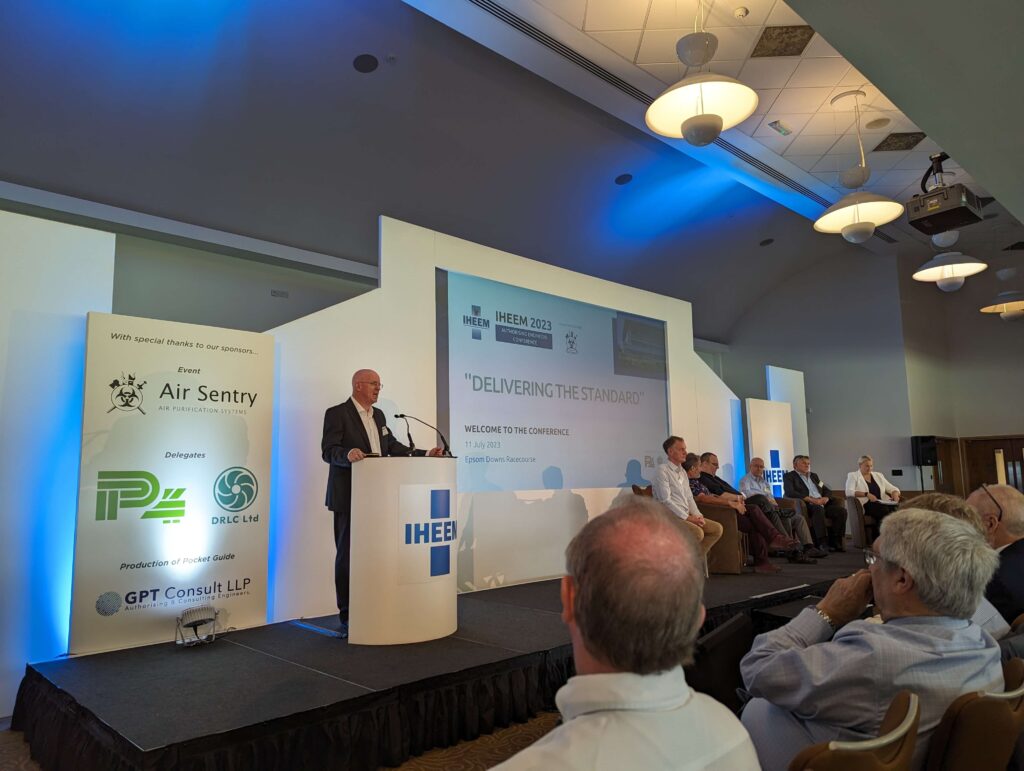courses in your basket.
The NHS Premises Assurance Model (NHS PAM) plays a crucial role in ensuring the safety, efficiency, and quality of healthcare facilities within the NHS in the United Kingdom. This model provides a comprehensive framework that helps NHS providers assess and improve the condition and management of their estates and facilities services. By adhering to the guidelines set out by the NHS PAM, NHS Trusts can enhance their oversight of estate risks, making informed decisions for the betterment of patient care and staff well-being.
The deadline for submitting the NHS PAM is Friday, 8th September 2023. It is crucial for NHS Trusts to complete and submit the required documentation by this date to ensure compliance and demonstrate their commitment to maintaining a safe and efficient healthcare environment.
But what does the NHS PAM cover?

The NHS PAM encompasses six key domains, each of which addresses a specific aspect of premises assurance. These are identified as Safety Hard, Safety Soft, Governance, Effectiveness, Efficiency and Patient Experience. Each of these can be further categorised and explored in terms of:

At the recent IHEEM Authorising Engineers Conference (Tuesday, 11th July 2023), Pete Sellars, CEO of IHEEM and past Head of Profession for NHS Estates & Facilities Policy at the Department of Health set out the background of how NHS PAM was established and mandated.
NHS PAM was launched in 2013 during Pete’s time at the Department of Health and was developed to support Trusts to deliver on the pledge outlined in the NHS Constitution “You have the right to be cared for in a clean, safe, secure and suitable environment”.
However, the tragic events of the Grenfell Tower Fire highlighted the vital importance of appropriate governance not just around fire-safety but all aspects of the estate and its related services. As a result, NHS England & NHS Improvement mandated NHS PAM and it is now included as a legal requirement under the NHS Standard Contract.
Pete was joined by Paul Kaye, Director of QuiqSolutions, who has developed specialised software for completing, tracking and reporting on NHS Premises Assurance Model findings. Paul delivered a demonstration of his software and gave a preview of packages that are currently in development in conjunction with IHEEM. Paul said the following regarding the QuiqSolutions system, which forms part of our brand new NHS Premises Assurance Model training course:

In essence what we do, is enable people to comply visibly with a full 360 view of governance.
The solution is designed to make people more productive with alerts and reminders.
It's about turning the process into something that actually drives continuous improvement.
Paul Kaye, QuiqSolutions
To support NHS Trusts and Estates and Facilities teams in efficiently completing the NHS Premises Assurance Model documentation, We now offer a specialised training course. This 1 day course is designed to provide clarity on the technical requirements of the NHS PAM and its associated documentation. Participants will explore the variety of evidence required for completion and gain a deeper understanding of the scoring matrix within the documentation.

There are scenario-based exercises as part of the training course, which demonstrate best practice for capturing, recording and transferring data identified during the PAM assessment, including in-depth real-time demonstrations of the digital NHS PAM solution provided by QuiqSolutions.
The course is ideal for individuals responsible for NHS Estates and Facilities Services, including Associate/Deputy Directors of Estates & Facilities, Estates Managers/Officers, Authorised Persons, Facilities Managers, Administrative Support, and FM Managers. Additionally, other professionals involved in contract management, procurement, compliance, and finance may also benefit from the training.
By completing this City & Guilds Accredited NHS PAM training course, participants will enhance their knowledge and skills in compiling and presenting accurate data for review. This will enable them to navigate the NHS PAM requirements effectively, ensuring a comprehensive understanding of estate risks and ultimately contributing to the improvement of the quality and safety of NHS facilities.
We have course dates available right up until the NHS PAM deadline and beyond.
Enquire now with one of our friendly and knowledgeable Account Managers by calling 0333 121 1215, or email info@ppltraining.co.uk.
Alternatively, check out our course page below.